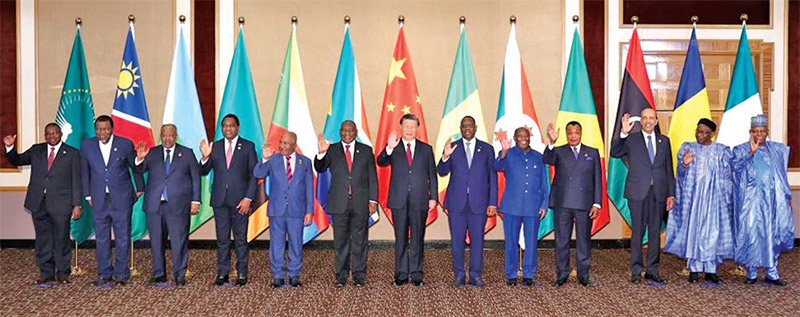Coups against pro-western leaders opens a window for India to build long terms relations in the continent
 Maj. Gen. Atanu Pattanaik (retd)
Maj. Gen. Atanu Pattanaik (retd)
Only last year, Niger had become France’s partner of last resort following its expulsion from Mali and Burkina Faso, with the then President Mohamed Bazoum being described as one of the few remaining pro-West leaders in the region. Niger became a key ally for western, particularly French, American and Turkish forces. All that changed on the July 26 with a coup that saw the commander of the Presidential Guards, General Abdourahmane Tchiani, putting President Bazoum and his family under arrest and declaring a new military junta headed by him. The coup came in the wake of anti-French sentiments in the region and coups in the former French colonies such as Guinea, Mali and Sudan in 2021, and two in Burkina Faso in January and September 2022, which has led to the region being called a ‘coup belt.’
The Washington Post summed up the unfolding disaster in Niger in four ways—embarrassing, ominous, catastrophic and apocalyptic. Embarrassing because the country’s coup on July 26 is a blowback for a clueless West: neither the hapless former colonial power, France, nor the waning superpower, the US, saw this coming. Ominous, because it’s a windfall for Russia and China as they vie with the West for influence in the region and the world. Potentially catastrophic because it’s a setback in the struggle against jihadist terrorism and uncontrolled migration. And possibly apocalyptic if it marks a slide into a world war.
In a related development, the French riots in late June 2023 put the spotlight on migrants from Africa in many ways. There were distinct reverberations about non-assimilation of the African migrants into the French society even after three to four generations. There were accusations of Islamophobia and racial discrimination on the part of the French police. Above all, the European far-right got a fillip to their anti-migrant campaign with ruling dispensations in Poland and Italy tightening migration laws. The Dutch coalition government fell on disagreements on immigration numbers. The migrants are being accused of being ungrateful for the shelter and succour provided by the host countries. The truth lies somewhere in between.
The riots also brought to the fore some old utterances that got new meaning as the riots riled the French society. In a 2019 video grab of a campaign rally speech, the now Italian Prime Minister Giorgia Meloni is seen berating France for its continued exploitation of its former colonies in Northwest and Central Africa. She said the unending and relentless flow of migrants washing up in flimsy rickety boats on Italian shores was mainly because France continued its neocolonial profiteering practices that leave these people desperately poor and impoverished. The events in western and west central Africa in the past three years reflect those sentiments.

Ugly Neocolonialism
The African continent has natural resources and commercial power to become the richest continent in the world but oppression, bribery and exploitation by the west hinder its development. Neocolonialism is no doubt the number one obstacle in Africa’s economic development. Many think that Africa gained independence from imperialist western countries, but the question is to what extent?
The term neocolonialism was coined by the well-regarded first President of Ghana, Kwame Nkrumah. According to him, “The essence of neocolonialism is that the state is in theory independent and has all the outward trappings of international sovereignty. In reality, its economic system and thus its political policy is directed from outside. Neo-colonialism thus refers to a situation of infringed national sovereignty and excessive influence/ control exercised by foreign corporations and donors.”
France was the predominant colonial power that ruled over what are now 14 sovereign nations; Benin, Burkina Faso, Senegal, Cote d’Ivoire, Mali, Niger, Togo, Cameroon, Central African Republic, Guinea Bissau, Equatorial Guinea, Chad, Congo-Brazaville and Gabon. When those states declared independence from France, the French government put all the former colonies in a group called ‘compulsory solidarities.’ This meant that those independent states would use Franc CFA (French Colonies in Africa) printed in France and need to pay 65 per cent of foreign currency reserves to the French treasury and 20 per cent for their financial liabilities. So, each colony has only 15 per cent left to use from their own money.
The currency has been much criticised for restricting the sovereignty of the African member-states, effectively putting their monetary policy in the hands of the European Central Bank when the EU was formed. Only in May 2020, the French National Assembly agreed to end the French engagement in the West African CFA franc, including the foreign reserve deposit requirements. The stranglehold of France on its former colonies is best illustrated by its conditions imposed on Cameroon through a Cooperation Agreement whose Article 6 reads thus:
- France shall determine Cameroon’s political, economic and sociocultural orientations.
- France shall guide the determination of Cameroon’s educational programme at all levels.
- France shall be given priority in the exploitation of Cameroon’s strategic raw materials. In the event where France is not interested, Cameroon may seek other partners or exploit the raw material herself.
- In case of exigencies of internal or external threat, the Cameroon President may call on French military assistance. If he is not in a position to do so, the French Ambassador to Cameroon can do so instead of the Cameroonian authorities.
It is evident that not only did France control the finances of its former African colonies, but it had the first right to exploit its strategic raw materials. Thus, exploitation continued, turning these so-called sovereign countries into vassal states of France. The answers to obvious questions like why the resource-rich African nations are so poor; why they don’t get value for their strategic minerals such as uranium, cobalt, lithium, diamond, gold and oil; and why there is widespread unemployment and poverty lie in these exploitative conditions that the French imposed at the time of their independence.
You must be logged in to view this content.

